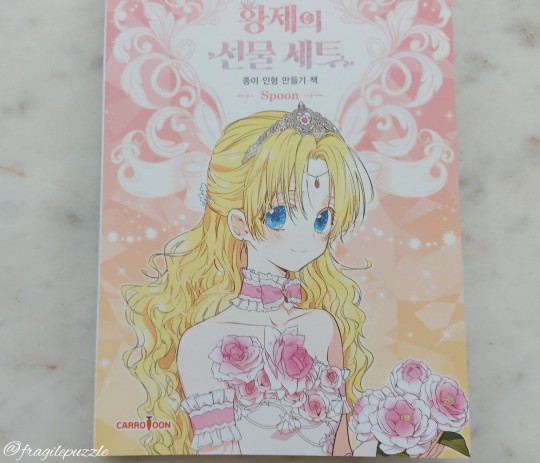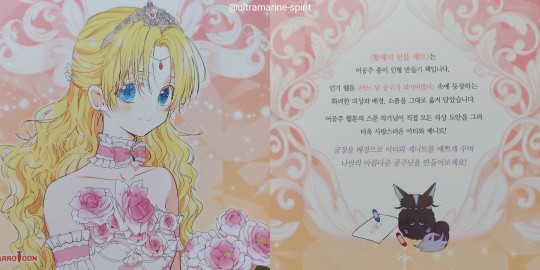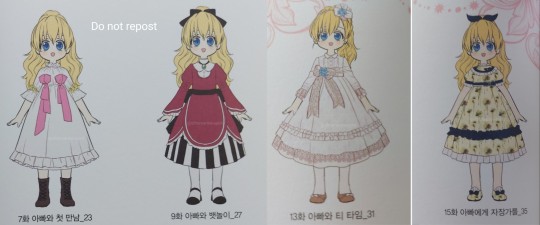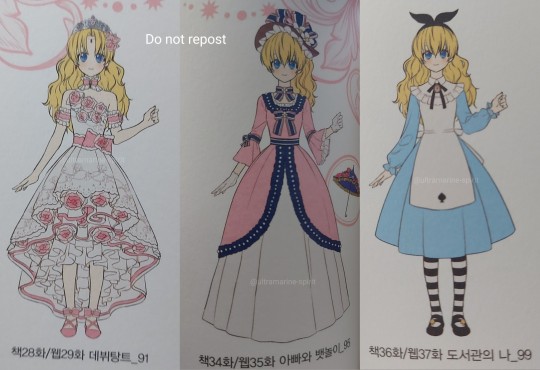#Claude Pompidou
Explore tagged Tumblr posts
Text



Photo taken on February 3, 1979 on the occasion of the inauguration of the Monte-Carlo conference center-auditorium, of Claude Pompidou, the widow of the former President of the Republic Georges Pompidou, the violinist and American conductor Yehudi Menuhin, Princess Grace, Prince Rainier and their daughter Caroline of Monaco.
19 notes
·
View notes
Text


Paris January 28, 1969, Madame Claude Pompidou, the wife of the future President of the French Republic attending the presentation of the Spring-Summer Haute Couture Collection, in the Chanel salons, 31 rue Cambon.
Paris 28 janvier 1969, Madame Claude Pompidou, l'épouse du futur président de République française assistant à la présentation de la Collection Haute Couture Printemps-été, dans les salons Chanel, 31 rue Cambon.
#haute couture#chanel#claude pompidou#spring/summer#printemps/été#fashion 60s#january 1969#31 rue cambon#fashion show#défilé de mode#vintage fashion
4 notes
·
View notes
Text

Charlotte Perriand, Bibliothèque de la Maison du Mexique, (lacquered steel, aluminum, and wood), Ateliers Jean Prouvé, Nancy, 1952 [Centre Pompidou, Paris. © Adagp, Paris. Photo: Jean-Claude Planchet/Centre Pompidou]
#design#structure#geometry#charlotte perriand#ateliers jean prouvé#jean claude planchet#centre pompidou#1950s
40 notes
·
View notes
Text


100 years ago - Peter Doig, 2001 (Centre Pompidou)
My lover observing Claude Monet "Nymphéas avec rameaux de saule" painting (1917) - 2024 (Giverny, France)
0 notes
Video
Claude Leveque, Valstar Barbie, 2003 par timjeby
0 notes
Text
Que voir à Paris ? Un choix
Art, art, art... There are so many art exhibitions in Paris, it's hard to make a choice. This choice I Maleis arbitrary. I rather opted for the smaller museums, the lesser known artists. And I mainly on my personal taste and friendships. Read and enjoy!
Top Germaine Richier – Mark Brusse – Anna-Eva Bergman – Léon Monet – Bourdelle – Françoise Petrovitch – Sarah Bernhardt English summary : click here Germaine Richier dans son atelier, vue par la cinéaste Agnès Varda Vous vous etonnez de ne pas trouver dans cet aperçu les “grandes” expositions telles Manet/Degas au Musée d’Orsay, ou Les Nymphéas à l’Orangerie ? Eh bien, vous êtes déjà au…

View On WordPress
#Antoine Bourdelle#art#art contemporain#Ary Scheffer#Centre Pompidou#Claude Monet#exposition#Françoise Pétrovitch#Gernaine Richier#impressionnisme#Léon Monet#Mark Brusse#musée Bourdelle#musée d&039;art moderne de Paris#musée de la vie romantique#musée du Luxembourg#Paris#peinture#Petit Palais#Philippe Cognée#Sarah Bernhardt#Sculpture#XIXe siècle#XXe siècle#XXIe siècle
1 note
·
View note
Text
WMMAP's paper doll book review




Ever since I got into WMMAP there was something I wanted to get more than anything else in the world. But no matter what, for some reason or another I could never buy it. My own personal Moby Dick, if you will... the extremely rare paper doll book included in volume 3's limited edition.
Today, my search has finally come to an end. Review under the cut.
It doesn't show that well in video or pictures, but Athy's eyes (and her tiara, jewelry and ribbon) are shiny! The holographic effect makes her eyes look truly jeweled. A very nice detail.

The book's cover and back. My god, Athy is so beautiful... A close-up of this illustration is actually used in the manhwa! As well as the Blackie plushie.
After this there are some pages dedicated to the instructions for making the dolls. I can't include them because of Tumblr's picture limit, but they are pretty simple, nothing too interesting.


Sorry the picture quality isn't the best. The book and its pages are very thick, so it's hard to open it and take pictures ; ;
Tiny Athys together! These figures show how the paper dolls are supposed to look once you make them. It's also a great reference for Athy's outfits.
Here is a fun detail. All the outfits have a "name" under them. In order, these are:
Chapter 7. First meeting with Dad
Chapter 9. Boating with Dad.
Chapter 13. Teatime with Dad.
Chapter 15. Lullaby for Dad.
Chapter 17. Lucas and Blackie.
Chapter 18. Blow~ on Dad's cheek. ("호오" doesn't have a direct english translation, but it refers to when Athy slapped Claude and blowed on his boo-boo lmao)
Chapter 21. Walking with Dad.
Chapter 21. Ijekiel and the angel.


Teen Athys together! The outfits' names are:
Chapter 24. Dance class with Madame Pompidou.
Chapter 24. First dance plan with Felix.
Chapter 24. Lucas and the "wrong type of smarts" guy. (I translated the names just to talk about this lmao. The literal meaning is "smartdumb" and it refers to Lucas saying Athy is "only book smart" because she couldn't understand Claude's feelings. Other translations could be "not that smart guy" or "not really smart guy")
Chapter 24. The sound of me striking gold. (This one is also weird. Literal translation could be "the sound of my destiny unfolding"? Tapas translated it as "the sound of my life turning around". I kept Tappy's translation)
Chapters 29. Debutante.
Chapter 35. Boating with Dad.
Chapter 37. In the library.

This is the "paper doll making" part of the book. Every doll comes with her pair of clothes, accessories and such. You are supposed to cut them, and use the little paper flaps and glue to make the dolls.
At the end of the book there are also some backgrounds to pose the dolls with. They are Athy's room, her tea room where she often has snacks with Lucas, the dance room from chapter 25, the outside of the Emerald Palace, and Claude's room.
I was thinking of actually making the dolls... but the book is so pretty that I don't have the heart to cut it OTL. Maybe if I'm ever able to get a second copy, though I doubt it because this book is very hard to come by.
That's all I have for you for the time being!
#Lithi can serve as a witness for how crazy i went hunting for this book LMAO#im so happy to finally being able to get it#as always. please dont repost <3 ty#also this post took me a long while to put together lmao#who made me a princess#i suddenly became a princess#suddenly became a princess one day#wmmap#sbapod#sbap#athanasia de alger obelia#athanasia#athy#wmmap merch#Oh i should tag this as#wmmap fashion
82 notes
·
View notes
Photo

LA COMPAGNIE DES ANIMAUX – 30.06 > 17.11.2024 | Maison des arts Georges & Claude Pompidou
3 notes
·
View notes
Photo

Centre Georges Pompidou Beaubourg, Paris
Claude Falguière
#pompidou centre#pompidou#centre georges pompidou#architecture#paris#beaubourg#4th arrondissement#renzo piano building workshop#renzo piano#richard rogers#constructivism#inside-out#zigzag#diagonal#escalator#superstructure#gerberette#trusses#bracing cables#façade#complex#structure and design#musée#museum#modern art museums#black and white photography
25 notes
·
View notes
Text

Françoise Gilot, the accomplished painter whose art was eclipsed by her relationship with Pablo Picasso, has died at 101.
She made celebrated paintings exhibited at the Met and MoMA, and wrote a best-selling account of her years with Picasso. By Harrison Smith
The Washington Post: Françoise Gilot had just finished dinner at Le Catalan, a Left Bank bistro in Paris, when Pablo Picasso approached her table with a bowl of cherries. He was 61, a master artist who had already reinvented himself several times over. She was 21 and, like the friend accompanying her that night in May 1943, starting out as a painter.
“That’s the funniest thing I’ve heard all day,” Picasso told the two elegant young women upon learning they were artists. “Girls who look like that can’t be painters.”
In fact, Gilot’s work had just appeared in an exhibition for the first time; one of her canvases was a veiled swipe at the city’s Nazi occupiers, showing a taxidermied hawk with the Eiffel Tower rising in the background.
She would continue to paint through the tumultuous years that followed, as she became Picasso’s mistress, model and muse, the mother of two of his children and, by his account, the only woman who ever left him.
Ms. Gilot, who was 101 when she died June 6 at a hospital in Manhattan, achieved a distinguished career as a painter, with her work shown at the Metropolitan Museum of Art, Museum of Modern Art and Centre Pompidou in Paris.
She also published graceful, incisive memoirs and poetry collections, even as she spent decades battling with those who sought to define her by the men in her life, including Picasso, her friend Henri Matisse and her second husband, American virologist Jonas Salk, who helped eradicate polio.
Those men certainly influenced and inspired her, Ms. Gilot said. But there was no reason to view her as a supporting figure rather than a leading one. “Lions mate with lions,” she told Mirabella magazine. “They don’t mate with mice.”
The only child of a wealthy agronomist, Françoise Gilot was born in the Paris suburb of Neuilly-sur-Seine on Nov. 26, 1921. As a child, she borrowed paintbrushes from her mother, a homemaker who worked with watercolors and ceramics. Her father, who pined for a son and dressed Ms. Gilot in boys’ clothing, pushed her toward international law.
Gilot graduated from the Sorbonne at 17, in 1938, with a bachelor’s degree in philosophy. She was studying law when the Germans invaded France in 1940. “After that,” she told TV interviewer Charlie Rose, “I thought, ‘Well, you know, I don’t know how long we will remain alive. So I’m going to do what I want.’ ”
She dropped out of law school at the Sorbonne, an event that marked the beginning of a years-long estrangement with her father, and was studying at the Académie Julian art school when she began visiting Picasso’s studio in 1943 after their initial encounter at the bistro.
By then, Picasso had separated from his first wife, Russian dancer Olga Khokhlova, and taken up with photographer Dora Maar. He soon abandoned her for Ms. Gilot.
Their relationship, she wrote in a best-selling memoir, “Life With Picasso” (1964), was “a catastrophe I didn’t want to avoid” — a passionate romance that was intellectually and artistically fulfilling but marred by episodes of physical and emotional abuse.
The couple lived together for nearly a decade, spending much of their time at a Riviera villa known as La Galloise, where Picasso introduced Ms. Gilot to friends including the existentialist philosophers Jean-Paul Sartre and Simone de Beauvoir, the filmmaker and artist Jean Cocteau, and the painters Georges Braque and Matisse.
The latter “acted like a visa on my passport to the realm of art,” Ms. Gilot said. Picasso incorporated Gilot and their two children, Claude and Paloma, into sculptures, paintings, ceramics and lithographs. But Gilot’s own work drew more from Matisse, whose brightly colored, emotionally reserved style she preferred over Picasso’s expressionistic technique.
When their work was exhibited together in 2012 at the Gagosian Gallery in Manhattan, Picasso biographer John Richardson declared that “Picasso took from her rather more than she took from him.”
Reviewing her 1965 solo exhibition at the Findlay Gallery in Manhattan, New York Times art critic Stuart Preston wrote that Ms. Gilot “is an artist very much in her own right …
"Without any self-indulgent interest in sensuous or ‘interesting’ textures, she has a feeling for the quality of paint itself and for the mysteriously effective relationship of color and shape that lends her paintings, large and small, a genuinely authoritative air.”
In 1970, she married Salk, perhaps the most famous physician in the world for his work on polio two decades earlier. He was running a lab in San Diego when a mutual friend introduced him to Ms. Gilot.
Salk knew next to nothing about painting; she knew little of science. The couple remained together until his death in 1995.
Gilot eventually sold all the Picasso works she owned, including “La Femme-Fleur,” because of the “bad luck” that seemed to trail him — including the suicides of his mistress Marie-Thérèse Walter, his wife Roque and his grandson Pablito.
Gilot chaired the fine arts department at the University of Southern California. She also wrote books including “Matisse and Picasso: A Friendship in Art” (1990) and “About Women” (2015), with Lisa Alther, and was appointed an officer in France’s Legion of Honor in 2009.
Despite losing vision in her left eye, she continued painting into her 90s.
8 notes
·
View notes
Text

Georges Claude Vénard, Double portrait dans un intérieur, 1942 © Centre Pompidou
3 notes
·
View notes
Text

Princess Grace eating an ice-cream with Claude Pompidou at a fashion show in Paris, in the late 1970s.
11 notes
·
View notes
Text
😊😊😊😊😊😊😊😊😊
Pour avoir de l'humour, on est en rééducation ici à cause du 'rat pack' de Hollywood....
Franck Sinatra, dean Martin, Shirley MacLaine, Peter lawford, Sammy Davis jr....
Les historiques....
Donc ils nous emmerdent ici à Marseille....
Et on a eu le pauvre Alain Delon à être emmerdé depuis 1970 par Mme Claude Pompidou.... Ils ont dit à Aix en Provence où il a habité entre 1970 et 1975....

16K notes
·
View notes
Text

Marcel Duchamp, Rotorelief Escargot, (offset lithograph on cardboard), 1953-1965 [Centre Pompidou, Paris. © Association Marcel Duchamp / Adagp, Paris. Photo: Jean-Claude Planchet/Centre Pompidou]
#art#geometry#pattern#structure#cardboard#marcel duchamp#jean claude planchet#centre pompidou#association marcel duchamp#1930s
26 notes
·
View notes
Text
PERSONNE AU BOUT DU FIL
Marie-France
Vieux prénom féminin
De la bourgeoisie
Des années 90
Est prêt à disparaître
Mais Marie-France
Symbole d'une vieille France
Avec Marie-France Garaud
Dame au chignon
Le pompidolisme grâce à elle
Refusant les duègnes
Elle sut Georges Pompidou assassiné
Elle aide pour Claude Pompidou
Le but se couper du dieu soviétique
Donc Marie-France
Prénom de Résistance
Vendredi 8 novembre 2024
0 notes
Text
vimeo
Mieux comprendre la réalité de ceux qui en perdent la notion / Institut Claude Pompidou. Centre d'accueil, d'hébergement, de soin et de recherche sur les maladies neurodégénératives.
0 notes